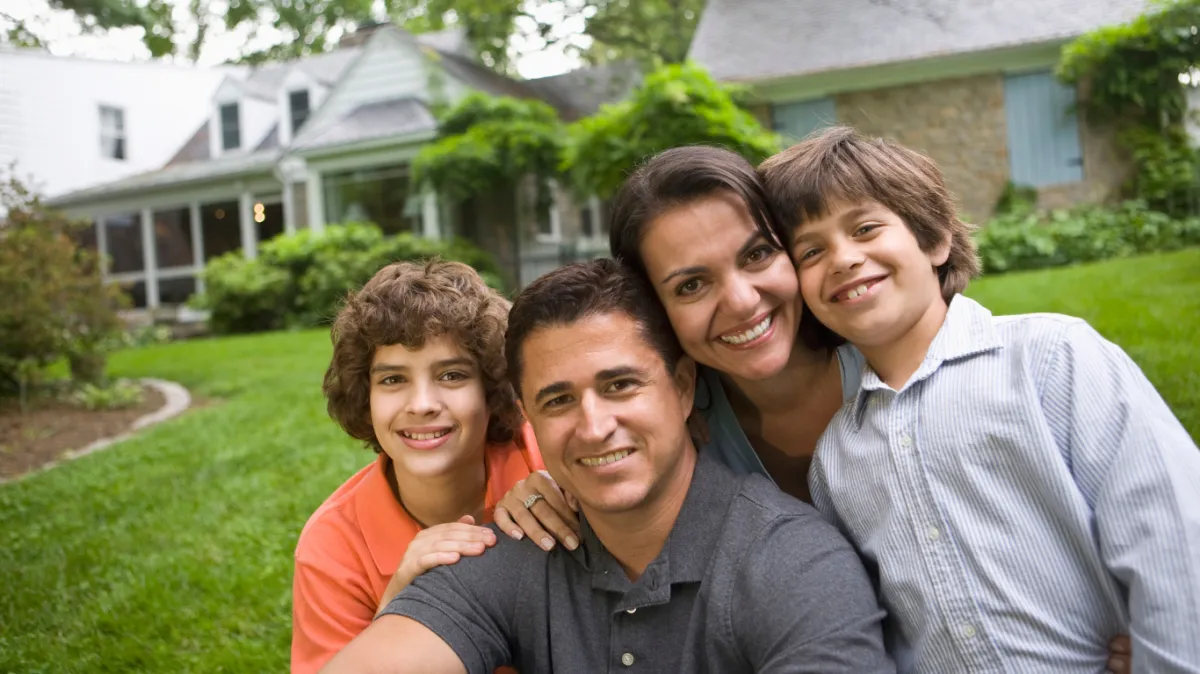Why American Homeowners Are Focusing On Energy Savings

Read time: 3 minutes
We need energy to run our lives, especially in this day and age where we rely heavily on modern technology. Sometimes we rely too much on technology and that it is running our lives. When you get a chance to unplug think about this… how much energy do I use and what do I use it on?
There’s been a movement to be more energy conscious for over the last decade and for good reason. There are many benefits to being energy conscious. One of the main reasons is that we have a limited amount of fossil fuel left and the more we use the thinner our earth’s ozone layer becomes.
Here’s an interesting fact… Did you know that out of all the coal, oil, and natural gas that we burn in this country, 75 to 90 percent is wasted. How is it wasted you’re probably wondering? Some of it, of course, is wasted in the generation of electricity, some in the distribution of electricity, and some in the transmission of electricity, but most of it is wasted through inefficiency… inefficiency by design or inefficiency by lack of design. What that means is that it takes an enormous amount of energy just so that we can binge watch our favorite TV series on Netflix. For a tiny bit of enjoyment, we expend a huge amount of fossil fuel.
So what’s the take away? We can do a lot for the environment by just little tiny changes in how we use energy. Small changes for huge results.
Some things to keep in mind while thinking about how you can be more energy conscious is the difference between Energy Conservation versus Energy Efficiency. Energy Conservation is about cutting back on the actual energy being used. For example, conserving energy could mean taking a shorter shower, turning off lights when not needed, or commuting to work by bike instead of by car.
The distinction between energy conservation and efficiency is that you aren’t changing behaviors such as avoiding energy use, instead you are cutting down on the energy required to achieve the same result. Take a light bulb for example, changing out your old incandescent bulbs with an LED version can reduce the amount of energy required to achieve the same desired effect of lighting your home.
Ultimately, when trying to reduce your carbon footprint, taking steps to conserve while also being more efficient is ideal. Every little bit helps. A great starting point is with smart energy saving decisions around the house such as installing a smart thermostat, installing weatherization strips around the windows and doors, or like we mentioned earlier, changing all lights to LEDs. If you’ve done all you can and want to move onto the bigger projects, it's best to leave it up to the pros.
At Abode we can help. Our focus will be to cut down on the energy required to heat and cool your home through our energy-efficient upgrades such as: double pane low-e windows, attic insulation, high efficiency furnaces and air conditioning units, and cool roofs. All these purchases will allow you to keep the temperature in your home where you like it, but with less energy. Once you’ve made all of these changes, we recommend purchasing solar panels to replace the electricity from your local utility company with clean solar power to run your home. Give us a call and speak with an energy expert so we can get you a customized plan today to help you know how to reduce your carbon footprint.

Read time: 3 minutes
We need energy to run our lives, especially in this day and age where we rely heavily on modern technology. Sometimes we rely too much on technology and that it is running our lives. When you get a chance to unplug think about this… how much energy do I use and what do I use it on?
There’s been a movement to be more energy conscious for over the last decade and for good reason. There are many benefits to being energy conscious. One of the main reasons is that we have a limited amount of fossil fuel left and the more we use the thinner our earth’s ozone layer becomes.
Here’s an interesting fact… Did you know that out of all the coal, oil, and natural gas that we burn in this country, 75 to 90 percent is wasted. How is it wasted you’re probably wondering? Some of it, of course, is wasted in the generation of electricity, some in the distribution of electricity, and some in the transmission of electricity, but most of it is wasted through inefficiency… inefficiency by design or inefficiency by lack of design. What that means is that it takes an enormous amount of energy just so that we can binge watch our favorite TV series on Netflix. For a tiny bit of enjoyment, we expend a huge amount of fossil fuel.
So what’s the take away? We can do a lot for the environment by just little tiny changes in how we use energy. Small changes for huge results.
Some things to keep in mind while thinking about how you can be more energy conscious is the difference between Energy Conservation versus Energy Efficiency. Energy Conservation is about cutting back on the actual energy being used. For example, conserving energy could mean taking a shorter shower, turning off lights when not needed, or commuting to work by bike instead of by car.
The distinction between energy conservation and efficiency is that you aren’t changing behaviors such as avoiding energy use, instead you are cutting down on the energy required to achieve the same result. Take a light bulb for example, changing out your old incandescent bulbs with an LED version can reduce the amount of energy required to achieve the same desired effect of lighting your home.
Ultimately, when trying to reduce your carbon footprint, taking steps to conserve while also being more efficient is ideal. Every little bit helps. A great starting point is with smart energy saving decisions around the house such as installing a smart thermostat, installing weatherization strips around the windows and doors, or like we mentioned earlier, changing all lights to LEDs. If you’ve done all you can and want to move onto the bigger projects, it's best to leave it up to the pros.
At Abode we can help. Our focus will be to cut down on the energy required to heat and cool your home through our energy-efficient upgrades such as: double pane low-e windows, attic insulation, high efficiency furnaces and air conditioning units, and cool roofs. All these purchases will allow you to keep the temperature in your home where you like it, but with less energy. Once you’ve made all of these changes, we recommend purchasing solar panels to replace the electricity from your local utility company with clean solar power to run your home. Give us a call and speak with an energy expert so we can get you a customized plan today to help you know how to reduce your carbon footprint.
23
Years of Experience
28k
Our projects
4
Our products
25
Our Team Members
Learn.

